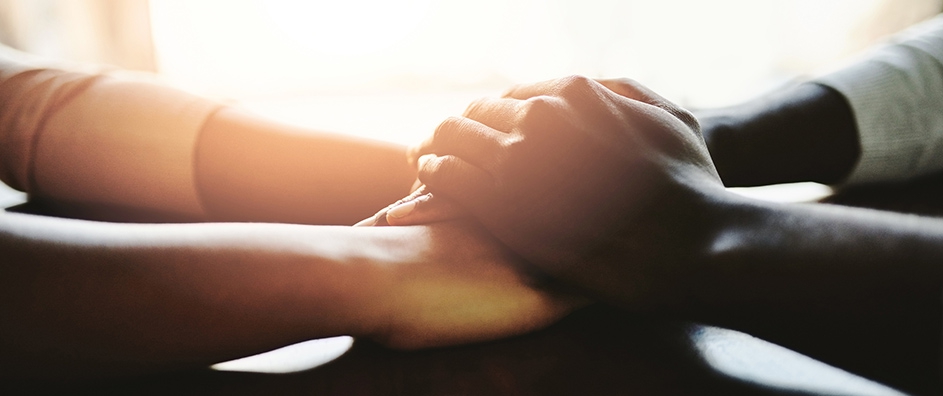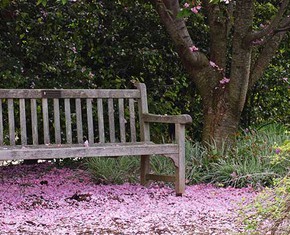The views expressed in our content reflect individual perspectives and do not represent the authoritative views of the Baha'i Faith.
People hurt each other with their words and actions—should we forgive them? If someone hurts us deliberately, how is it possible to forgive?
Basically, when we’re hurt, we have two choices: we can choose to carry a grudge and seek some kind of revenge, or we can forgive. Often what makes it possible to go forward rather than being stuck emotionally in the incident is forgiveness—from God and towards others and ourselves.
God, the Ever-Forgiving, is already good at forgiveness—it’s the rest of us that need practice!
Inasmuch as God is clement and loving to His children, lenient and merciful toward our shortcomings, why should we be unkind and unforgiving toward each other? As He loves humanity without distinction or preference, why should we not love all? Can we conceive of a plan and policy superior to the divine purpose? Manifestly, we cannot. Therefore, we must strive to do the will of the glorious Lord and emulate His policy of loving all mankind. – Abdu’l-Baha, The Promulgation of Universal Peace, p. 315.
The Baha’i teachings distinguish between forgiving individuals who hurt us, and forgiving harmful actions against society that involve administering justice:
If a person commit a crime against you, you have not the right to forgive him; but the law must punish him in order to prevent a repetition of that same crime by others, as the pain of the individual is unimportant beside the general welfare of the people. – Abdu’l-Baha, Paris Talks, p. 155.
Forgiveness, then, mostly applies to us as individuals. However, we commonly hear in modern media that we should forgive because it makes us feel better. It’s all about us. However, there doesn’t seem to be a religious scripture that backs this up as the primary motivation to forgive.
Why is forgiveness between individuals important then? If we can overlook each other’s mistakes, apologize for any harsh words we have said, forgive and forget each other’s failings, we have the ability to go forward. Forgiveness helps us detach from the hurt and our negative feelings and look at the bigger picture. We free ourselves from anger, grudges and revenge to be in friendship and relationship with each other and to keep working together towards common goals. Forgiveness makes unity possible.
When we assess our own actions, and determine that we have made an error or done what God or society determines is a sin or crime, what action do we take?
… return ye to God and repent, that He, through His grace, may have mercy upon you, may wash away your sins, and forgive your trespasses. – Baha’u’llah, Gleanings from the Writings of Baha’u’llah, p. 130.
What happens when we don’t take God’s forgiveness and apply it to self-forgiveness, asking others to forgive us? We get stuck. Sometimes this looks like excessive shame, continual focus on the problem, grief, and more. It becomes impossible to move past the incident. Of course, we cannot control whether others choose to forgive us, but the act of asking them can still be helpful.
When pain from past actions becomes stuck in the present, people commonly withdraw. Personal relationships, community involvement, work performance, and more can all suffer from disconnection and inaction.
The Baha’i teachings shed a wonderful light on why it’s important to turn towards forgiveness and “clean up” what has gone wrong:
Thy generous Lord will … forgive thy sins and transform them into goodly deeds. – Abdu’l-Baha, Selections from the Writings of Abdu’l-Baha, p. 141.
With forgiveness from God, which we can internalize to help us forgive ourselves, learning and growth can heal the injury. When we accept forgiveness, and stay open to taking action and participating in life after a problem occurs, it becomes possible for that learning to benefit others. Often people’s greatest services to others come as an outcome of error and tragedy turned towards good. The Baha’i teachings say that God, in His mercy, desires this kind of loving resolution for all of us:
We must emulate His [God’s] example. If a soul be ailing and infirm, we must produce remedies; if ignorant, we must provide education; if defective, we must train and perfect that which is lacking; if immature and undeveloped, we must supply the means of attainment to maturity. No soul should be hated, none neglected; nay, rather, their very imperfections should demand greater kindness and tender compassion. Therefore, if we follow the example of the Lord of divinity, we will love all mankind from our hearts, and the means of the unity of the world of humanity will become as evident and manifest to us as the light of the sun. And from our example the light of the love of God will be enkindled among men. For God is love, and all phenomena find source and emanation in that divine current of creation. The love of God haloes all created things. – Abdu’l-Baha, The Promulgation of Universal Peace, p. 315.
















Comments
Sign in or create an account
Continue with Googleor